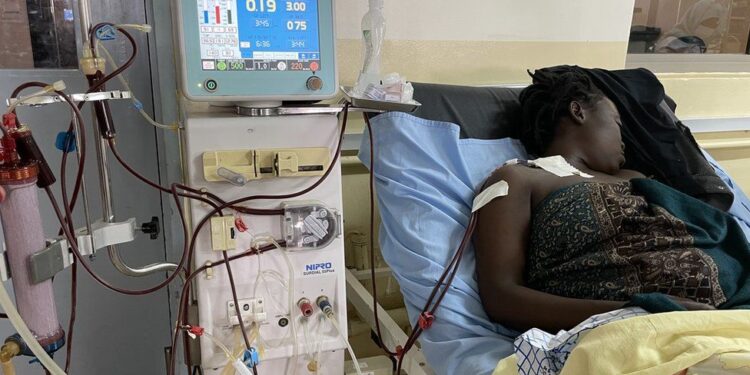The Director of the Dialysis Center at the Upper East Regional Hospital, Dr. Emmanuel Akatibo, has expressed concerns about the center’s imminent closure due to a lack of consumables.
The situation arises from the government’s failure to settle outstanding arrears owed to the center through the National Health Insurance Authority (NHIA).
Speaking on the issue Dr. Akatibo explained that the center, which started operations in mid-2024, has been struggling to sustain its services.
“After we began this center, there were challenges with financing. The government announced that dialysis treatment would be covered under the National Health Insurance Scheme (NHIS), but no clear funding mechanism was provided. As a result, we have been operating without receiving the promised payments,” he stated.
He added that in an attempt to sustain operations, the management briefly considered charging patients for some services.
“We thought of asking patients to pay to avoid shutting the center down. However, after two days, management decided to revert to free dialysis as proposed by the government. But now, we are running out of consumables, and without urgent intervention, we may have to shut down,” Dr. Akatibo lamented.
The funding crisis came to public attention after a Facebook post by former Upper East Regional Minister Tangoba Abayage alleged that the center was charging patients for services contrary to government announcements of free dialysis.
Dr. Akatibo clarified the situation, stating, “This is an issue that required better clarity from the start. While the announcement of free dialysis was well-intentioned, the lack of a clear financing plan has left us in this dire situation.”
The potential closure of the dialysis center would be a severe setback for kidney disease patients in the region, many of whom rely on the facility for life-saving treatment.
Dr. Akatibo appealed to the government and relevant stakeholders to urgently address the financial challenges to ensure the center’s sustainability.
“We are committed to providing care, but we cannot continue without the necessary support. The lives of our patients are at stake,” he emphasized.

